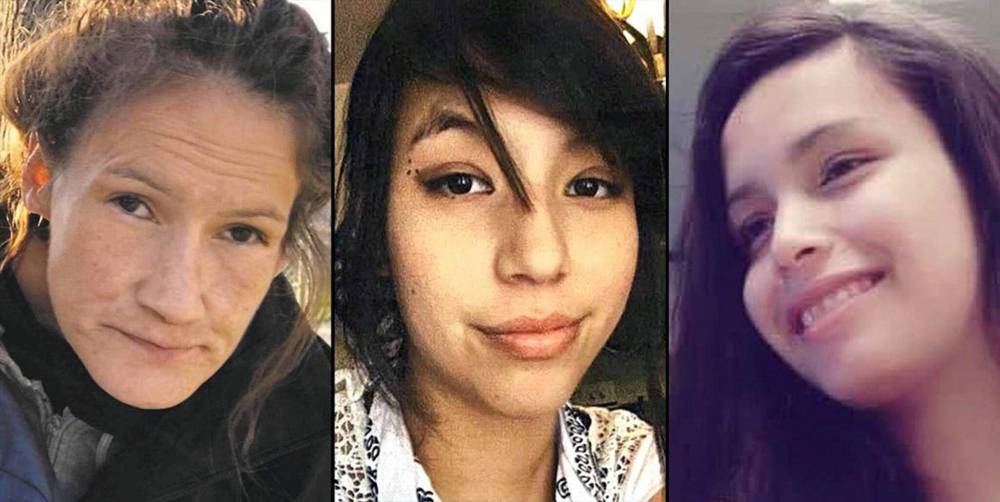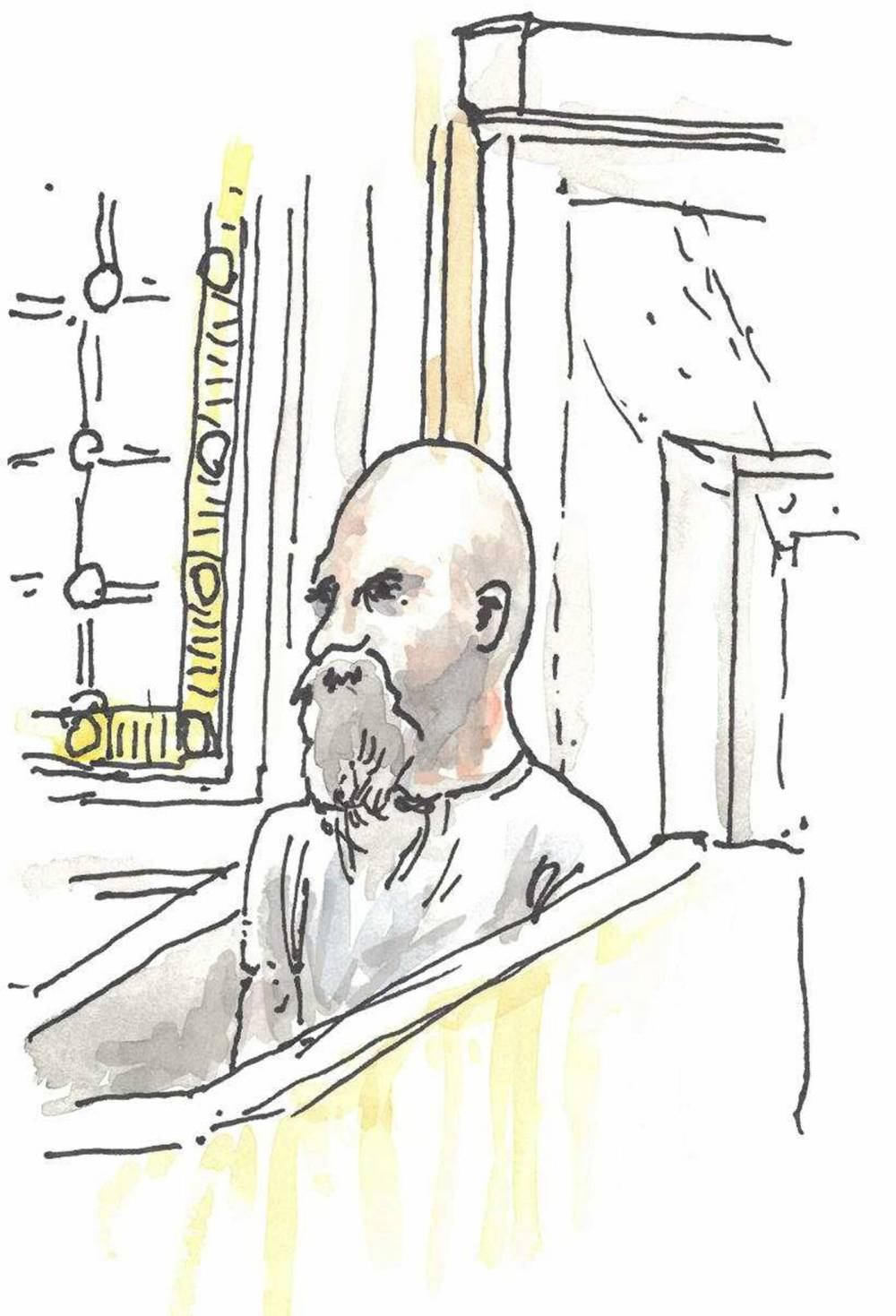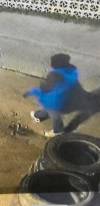‘I believe this was God calling me’
Horrific details of slayings emerge as trial begins; ‘No concerns’ about admitted serial killer’s mental health, officer testifies
Advertisement
Read this article for free:
or
Already have an account? Log in here »
To continue reading, please subscribe:
Monthly Digital Subscription
$19 $0 for the first 4 weeks*
- Enjoy unlimited reading on winnipegfreepress.com
- Read the E-Edition, our digital replica newspaper
- Access News Break, our award-winning app
- Play interactive puzzles
*No charge for 4 weeks then billed as $19 every four weeks (new subscribers and qualified returning subscribers only). Cancel anytime.
Read unlimited articles for free today:
or
Already have an account? Log in here »
An admitted serial killer used shelters as his hunting ground in a methodical scheme targeting Indigenous women for sexual violation and death, a judge was told Wednesday.
“This case is about a man’s hateful and cruel acts perpetrated against four vulnerable Indigenous women,” prosecutor Renee Lagimodiere told King’s Bench Chief Justice Glenn Joyal in an opening address outlining their case against Jeremy Skibicki.
“The Crown’s theory is that the accused devised a calculated scheme where he carefully thought out what he would do to them and then did those things,” Lagimodiere said.
Skibicki, 37, has pleaded not guilty to four counts of first-degree murder in the May 2022 slayings of three Indigenous women — Morgan Harris, Rebecca Contois and Marcedes Myran — as well as a fourth unidentified woman who was killed in March 2022. She has been named Buffalo Woman (Mashkode Bizhiki’ikwe) by Indigenous leaders.
Victims of admitted serial killer Jeremy Skibicki (l-r) Morgan Beatrice Harris, Marcedes Myran, Rebecca Contois.
Skibicki “preyed on these women at shelters and invited them back to his home where he assaulted them, often sexually, and killed them,” Lagimodiere said. “He engaged in vile sexual acts with their bodies, he then disposed of their remains as though they were garbage.”
Skibicki has admitted he “committed an unlawful act” by killing the women, but is claiming he should be found not criminally responsible by reason of mental disorder.
Skibicki was arrested May 17, 2022, one day after a man searching for scrap metal around 5:30 a.m. found Rebecca Contois’s head in a plastic bag in a garbage bin on Edison Avenue, a short distance from Skibicki’s McKay Avenue suite in North Kildonan.
“It’s a human… human female,” the man said on a 911 recording played for court.
Winnipeg Police Service Det. Sgt. Greg Allan, one of two officers who interrogated Skibicki over nearly 24 hours, said Skibicki showed no signs of mental distress or that he was suffering from hallucinations while in their custody.
“We had no concerns as to his mental health,” Allan said.
Skibicki sat in the prisoner’s box flanked by two sheriff’s officers, sipping on a cup of water as he watched his police interrogation play out on a large wall-mounted video screen.
Investigators had confronted Skibicki with surveillance video evidence and footwear impression evidence placing him at the location where Contois’s remains had been found when four hours into a 20-hour-plus interview, he asked to see an orthodox priest “to confess my sins” and admitted to killing Contois and three other women.
“At this time, I want to express you have done a very good job, you obviously aren’t stupid,” Skibicki told investigators. “I really just want to see how far I could take things, because the criminal justice system is a joke… I killed four people.”
Skibicki, who earlier in the interrogation talked to a legal aid lawyer, declined a second offer to speak to a lawyer, saying: “I am going to plead guilty to all of it.
On video, Skibicki sat with his legs crossed, his hands resting on his lap as he casually told investigators how he killed and disposed of the women, identifying two of them, Contois and Harris, by name.
Skibicki said he met the victim identified in court as Buffalo Woman outside of the Salvation Army. Skibicki said he took her to his home and attacked her as she was preparing to leave, believing she had stolen some of his property.
“I started to choke her. I thought she was dead, but she wasn’t,” he said. “When I was undressing her she became consciously aware. The last thing she said was f—-you.”
Jeremy Skibicki in court Monday. (James Culleton illustration)
Skibicki said he sexually violated the woman’s corpse before disposing of her body in a nearby outdoor garbage bin.
Skibicki said about a month later he met Harris, whom he had known previously, outside Siloam Mission. He said she had been barred from the mission and invited her to his home. Skibicki said he filled the bathtub with water as Harris went outside for a smoke.
“I wasn’t going to let her have that, but I was thinking… this is going to be her last smoke, so I let her enjoy that,” Skibicki said.
Skibicki said he tried to push Harris into the tub, and when she resisted, put her in a headlock.
“She kind of collapsed, with her head in the tub,” he said. Harris fought back and Skibicki drowned her.
He said he had sex with Harris’s corpse several times before disposing of her body in a garbage bin behind a nearby Midas Muffler shop.
Skibicki said he dismembered Contois and the victim now known to be Myran with a combat knife. Asked by investigators if he had any butchering or hunting experience and what knowledge he had of how to cut up bodies, Skibicki laughed and said: “Instinct.”
“I started to choke her. I thought she was dead, but she wasn’t … When I was undressing her she became consciously aware. The last thing she said was f—-you.”–Jeremy Skibicki
He said he met Myran in a back lane between the Salvation Army and Siloam Mission and invited her to his place.
Skibicki said he told the woman he was interested in a relationship, but she “was just using me for a place to stay.”
He said they were having sex and she “didn’t let me finish” when he “started to get a little rough with her.”
When Myran tried to leave, he strangled her. He admitted sexually violating her corpse several times.
Skibicki said he realized he would be unable to lift Myran’s body into a garbage bin.
“That was the first time I cut up a body,” he said.
Over 12 hours, Skibicki dismembered Myran in a bathtub full of water and Pine-Sol.
“It took a long time to cut the body into pieces,” he said, later adding he couldn’t remember where he disposed of her remains.
Skibicki said he met Contois for the first time on a bus a couple of months before her death, and she began staying at his place. She left for a time and when she returned said she loved Skibicki, he said.
“I was pretty sure I could get away with it, but I got sloppy.”–Jeremy Skibicki
“I knew she was just bullshitting me to get what she wanted. That’s probably one of the reasons I did what I did, because I saw through it,” he said.
Skibicki said he and Contois were having sex when she wanted him to stop and they started fighting.
“I put her in a chokehold… choked her to death.”
Again, Skibicki sexually violated Contois after killing her, and then put her body in a bathtub and dismembered her.
Skibicki described the murders as “mercy killings” and said he was “directed by God,” telling investigators he was driven by a white supremacist ideology and that he didn’t believe “that races are meant to be forced to live together.”
“I believe now it was (the victims’) time,” he said. “I believe… extreme desperate measures need to be taken for the survival of my people.”
“I believe this was God calling me,” he said. “It was something I decided to do because I thought I was right.”
Skibicki said he likely would have killed more women if he hadn’t been caught. Police arrested him May 18, 2022 in the death of Contois. He was charged with three counts of first-degree murder in the deaths of Harris, Myran and Buffalo Woman on Dec. 1, 2022.
“I was pretty sure I could get away with it, but I got sloppy,” Skibicki said.
“I wanted to (stop), but I don’t think I could have.”
Skibicki said he got the idea to dispose the victims’ remains in the garbage after reading about the case of Shawn Lamb and timed the disposal to coincide with scheduled garbage pick-ups.
Lamb was sentenced in 2013 to 20 years in prison for the killings of Carolyn Sinclair, 25, and 18-year-old Lorna Blacksmith.
Skibicki described other steps he took to avoid detection, including ensuring no one knew the victims had been with him and targeting women with no social media presence.
Skibicki told police he aborted plans to kill at least one woman because of her social media footprint.
The trial resumes Thursday with testimony from police officers who are expected to tell court about evidence seized from Skibicki’s home and other locations.
dean.pritchard@freepress.mb.ca

Dean Pritchard
Courts reporter
Someone once said a journalist is just a reporter in a good suit. Dean Pritchard doesn’t own a good suit. But he knows a good lawsuit.
Our newsroom depends on a growing audience of readers to power our journalism. If you are not a paid reader, please consider becoming a subscriber.
Our newsroom depends on its audience of readers to power our journalism. Thank you for your support.












